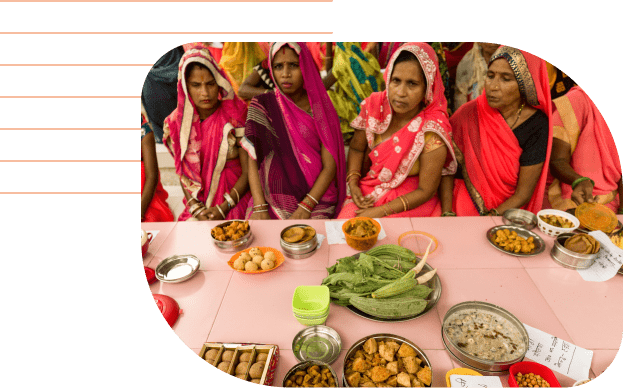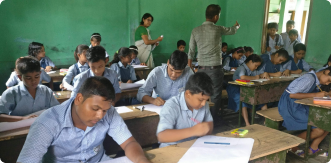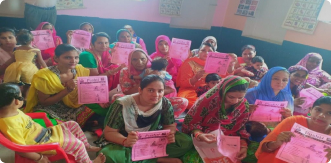

JSIPL helps strengthen food, health, and nutrition care systems so they can deliver high-quality information, supplies, and services. At the same time, its projects strive to build the capacities of service providers, families, and individuals through behavior-centered approaches that result in sustainable nutrition outcomes.

Working with global nutrition partners to support national, district and local governments to build resilient communities to improve nutrition for present and future generations.
Focusing on maternal and child nutrition, food security and emergency nutrition, and social and behavior change to achieve nutrition outcomes, especially for marginalized communities.
Providing technical support across sectors to strengthen and sustain evidence-based programs that respond to local needs.
Striving to bring about sustainable behavior change in communities concerning their understanding of nutrition.
Undertaking multisectoral programming to mitigate the multiple underlying causes of malnutrition in all its forms.
Advancing nutrition, especially in communities with poverty, chronic malnutrition, and issues related to food security.
Combining primary data on Anganwadi centers with currently available secondary data on nutrition to identify functional system-wide changes to improve child nutrition.
Drawing in community health workers to advocate for increased commitment to nutrition in community health programs.
Following a unique 360-degree model to explore different aspects of nutrition ranging from child profiling and growth monitoring to interpersonal counseling.



The USAID Advancing Nutrition project was a global effort to address the root cause of malnutrition. In India, the project partnered with JSIPL to work closely with communities, governments, the private sector, and other local and international organizations in Assam.

A 2-year community-centered project (2018 to 2020) integrated nutrition, health, and WASH-related goals in block Nabha in Punjab to enhance further access to nutrition services for married women, pregnant women, and mothers with children under two years of age and adolescents.